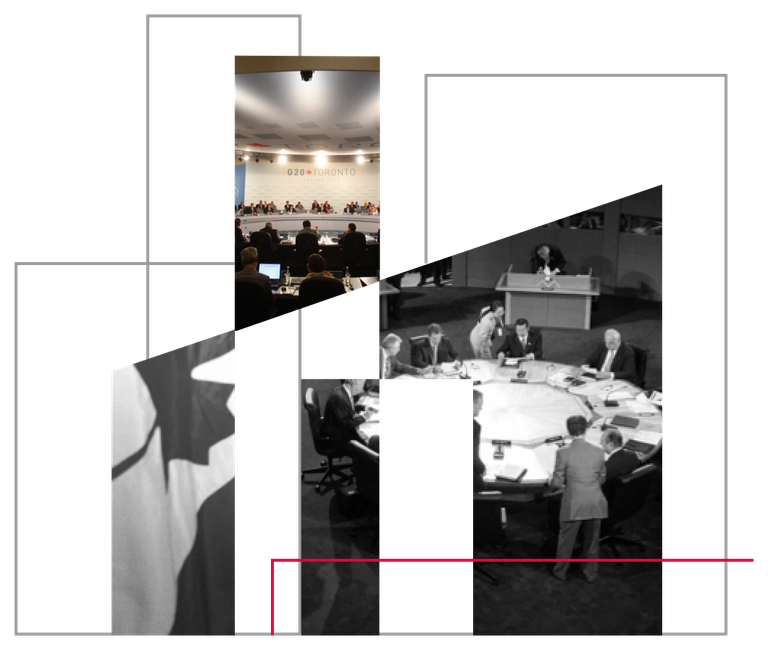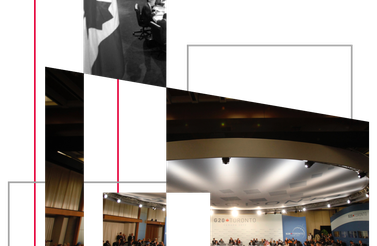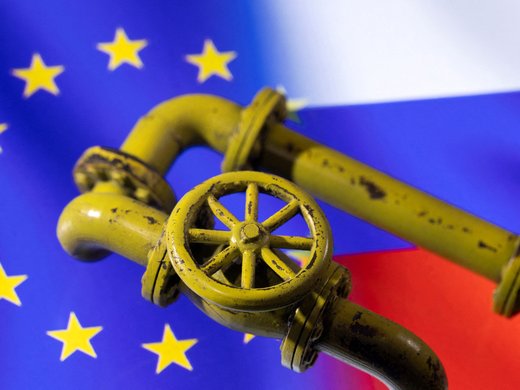Between the late nineteenth century and the mid-twentieth century, the world’s geopolitical centre of gravity shifted. Great Britain gradually lost the pre-eminence that it had enjoyed for decades as other industrial powers grew wealthier, developed new military capabilities and extended their global reach. To lessen the strains on their power, British leaders made new allies, such as Japan, and repaired relations with long-time rivals, such as France. To avoid unnecessary conflicts, they appeased potential adversaries, especially the United States, which was emerging as the world’s leading industrial economy (Kennedy 1976). And they increasingly called on their Empire to shore up Britain in times of crisis.
This shift pulled Canada in two different directions. Canadians had deep connections with both the declining British and the rising Americans. Although Ottawa had enjoyed autonomy in domestic affairs for decades and took pride in its status as the oldest of the Empire’s dominions, it had little say in its relations with the rest of the world. Officials in London made foreign policy not just for Britain, but for the Empire as a whole. Besides, Britain remained Canada’s largest trading partner, and most English Canadians retained important bonds — both familial and emotional — to the mother country. As a North American state, however, Canada could not escape its richer and more populous southern neighbour. In the final decades of the nineteenth century, hundreds of thousands of Canadians migrated to the United States, linking families on either side of the border. Growing railway networks carried goods and ideas, in addition to people, back and forth. Depending on the circumstances, Canadians viewed the United States as a potential threat and a potential partner, a source of envy and alarm, and an object of admiration and condescension.
The era of geopolitical flux posed challenges and created opportunities. As old assumptions about Canada’s place in the world became obsolete, new problems bedevilled decision makers in Ottawa. Could Canada count on Britain to defend it? Should Canada come to the defence of Britain or other parts of the Empire if they were threatened? Should the country — could the country — pursue its own national interests? What were those interests anyway? The course of events between the 1870s and 1940s brought these problems to a head, transforming Canada’s relations with the outside world and highlighting both the country’s abiding advantages and perennial afflictions. As Canada moved from the British sphere to the American one, it gained unprecedented control over its fate, but simultaneously grappled with the limits of its influence. That control meant it could make its own choices about foreign policy. But those limits, which endured through the Cold War and beyond, meant that the range of its choices would be constrained by decisions made in foreign capitals. Once Canada gained full independence, officials in Ottawa could choose the tactics, but other governments continued to set the strategy.
As old assumptions about Canada’s place in the world became obsolete, new problems bedevilled decision makers in Ottawa.
In the years that followed Confederation, decisions made in London demonstrated that British and Canadian interests did not always overlap. In 1871, the British army evacuated all but one of its bases in Canada. Although the American Civil War had nearly brought the countries to blows, British officials assumed that peace with the United States would prevail. To ensure that it would, they conceded to American demands in a number of disputes. In the context of a territorial dispute over Venezuela in 1895, the American government insisted that “the United States is practically sovereign on this continent, and its fiat is law.”1 In London, Lord Salisbury acquiesced (Schoultz 1998, 115). His decision implicitly accepted that Canada fell within an American sphere of influence. Shortly thereafter, when Ottawa questioned the location of the border between Alaska and the Yukon, the British took the Americans’ side. Prime Minister Wilfrid Laurier lamented the United States’ “grasping” behaviour, but recognized that he could not change the outcome (Stacey 1977, 99).
This pattern of events forced Canadians to grapple with fundamental questions about their country’s identity and global posture. In the heated debates that ensued, three rival approaches took shape. The first aimed to reinforce the imperial connection for both practical and sentimental reasons. Canadian identity — for many English-speaking Canadians, at least — was intertwined with British identity, and Canadian nationalism often expressed itself as support for the Empire and pride in Canada’s place in it (Berger 2013). “I…am an Imperialist because I will not be a Colonial,” political scientist Stephen Leacock told a Toronto audience in 1907 (Leacock 1907, 282). In this view, the Empire gave Canada a place and a purpose in the wider world. Besides, preserving the imperial connection was a matter of life and death. “Independent, we could not survive a decade,” Leacock argued (ibid., 288).
The second approach embraced the United States. As cross-border ties multiplied, Canada was moving toward a “general fusion” with its southern neighbour, the writer Goldwin Smith (1891, 279) argued. In their sense of themselves and view of the world, Canadians (at least English Canadians) already resembled their American cousins so closely that it was difficult to tell them apart. Erasing the border would protect, enrich and empower all British North Americans. Politics, economics, demographics and geography all pointed so strongly in that direction that there was no point delaying the inevitable.
The third school of thought envisaged what Leacock and Smith both repudiated: a country reliant neither on Washington nor London. If Britain would not stand up for Canada, the next time Ottawa faced a challenge to Canadian interests, instead of outsourcing its policy to the imperial government, the country ought to respond “in our own way, in our own fashion, according to the best light that we have,” Laurier argued (Stacey 1977, 99). The member of Parliament and journalist Henri Bourassa (1901) similarly exhorted his listeners to develop an authentically Canadian patriotism. Charting a course between the “old British frigate” and the “American privateer,” Canada had to be careful not to “tumble into the abyss” of the one or “trail in the wake of the other” (ibid. 42). On many questions, Laurier and Bourassa regarded each other as adversaries, but on this point at least, they agreed. Both men stopped short of demanding complete independence, but their ideas pointed in that direction.
These contending approaches regularly collided. In 1899, the British government called on Ottawa to send soldiers to fight the Empire’s enemies in South Africa. The request split Laurier’s Cabinet and threatened to divide the country. Much of English Canada rallied to the call to arms, but few French Canadians wanted anything to do with the conflict. Laurier worried that sending troops to a distant conflict would set a bad precedent but doubted that he could stand up to the force of pro-war sentiment. His government recruited volunteers to form a battalion, on condition that Britain covered the soldiers’ costs as soon as they reached South Africa. This compromise satisfied the war’s supporters but infuriated Bourassa. Canada was making sacrifices to help Britain, he argued, but it had no say in the direction of the war. Laurier agreed. “We should have the right to say to Great Britain: If you want us to help you, call us to your councils,” he told Parliament (Laurier, quoted in Long 1903, 138).
The First World War put this principle to the test. From its population of nearly eight million, Canada sent more than 600,000 soldiers overseas. The scope of the national contribution raised questions about the extent of Canadian influence over imperial policy. In the early stages of the conflict, Prime Minister Robert Borden fumed that the British denied him even basic information about the course of the war, let alone a say in major decisions. Echoing Laurier, he insisted that Britain no longer take the dominion for granted. “Unless [Canada] could have that voice in the foreign relations of the Empire as a whole, she would before long have an independent voice in her own foreign affairs outside the Empire,” he threatened in 1918. As a loyal supporter of the imperial ideal, Borden did not want that independence, but he used Britain’s reliance on Canadian support to claim greater influence while keeping the country within the Empire. British Prime Minister David Lloyd George accepted Borden’s proposal to include the dominions in imperial foreign policy deliberations once peace had returned (Hillmer and Granatstein 1994, 62). This approach foresaw a more cooperative — but still united — Empire. Canada would have influence but not control.
This vision never materialized. For one thing, it proved too difficult to put into practice. For another, the figures who dominated Canadian external policy in the interwar period concluded that the country needed more — but not total — independence. With a succession of small steps through the 1920s, Prime Minister William Lyon Mackenzie King expanded Canada’s ability to determine its relations with other states. He demanded the power to negotiate and sign treaties without London’s endorsement. Although British officials worried that this principle would shatter the unity of imperial foreign policy (and their unilateral control over it), they granted King’s request — and not just for Canada, but for the other dominions too. As Canada put it into practice, it established its own embassies, first in Washington, and then in Paris and Tokyo. King likewise asserted Canada’s “complete control” over military policy, rebuffed British plans for closer defence cooperation and, in 1922, rejected London’s request for Canadian troops during the Chanak crisis (Hillmer 2006).
King’s Conservative successor, R. B. Bennett, did not attempt to reverse these changes, but hesitated to go further. He felt a strong attachment to the Empire and doubted that Canada could accomplish much by acting alone, even under the auspices of the League of Nations. After King returned to office in 1935, he reduced Canada’s international commitments to a bare minimum, and reined in officials who wanted to take greater risks. When the head of the Canadian delegation to the League, Walter Riddell, called for an oil embargo against Italy, Ottawa smacked him down. Justice Minister Ernest Lapointe told the press that the “Government is not taking the initiative…and does not propose to take the initiative” (quoted in Eayrs 1965, 24). Likewise, facing the growing threat that Nazi Germany posed to European peace, King hoped for the best, even to the point of naïveté, and refused to guarantee that Canada would aid Britain in the event of war. He understood, however, that Canada could not remain neutral in any such conflict. Public opinion in English Canada would not stand for it and, besides, the country could not survive if Britain fell: “The only future left for Canada,” King concluded, “would be absorption by the U.S.” (quoted in Hillmer and Granatstein 1994, 145).
The United States’ rising power had long inspired ambivalent feelings in Canada. But as a matter of choice and necessity, the Great Depression and the Second World War brought the two countries closer together. In 1891 and 1911, Canadian voters had rejected freer trade with their American neighbours, for fear that economic integration would set the stage for political absorption. In 1935, however, King and American president Franklin D. Roosevelt agreed to slash tariffs on goods moving across the border. Three years later, a new agreement went even further. The prime minister remained leery of American influence but reasoned that closer commercial ties would help the Canadian economy recover. Once the war broke out, he resented American neutrality, but the fall of France and the prospect that Britain might succumb to a German invasion prompted him to seek closer continental military cooperation. In August 1940, the Ogdensburg Agreement created the Permanent Joint Board on Defence, which ensured American assistance in the event of an attack on Canada. The following year, Canada became a partner in producing US Lend-Lease supplies for Britain. By establishing “the economic corollary of Ogdensburg,” King told Parliament, the two countries had forged “a common plan of the economic defence of the western hemisphere” (Hillmer 1989, 107). Fifty years earlier, Canada had counted on Britain to guarantee its security in a crisis. Now it looked to the United States.
The war confirmed both Canada’s independent control over its foreign policy and its reliance on its great power partners. In 1939, King’s long-time adviser O. D. Skelton had worried that, by entering the conflict at Britain’s side, Canada had confirmed its colonial subservience. But the prime minister emphasized that the decision had been Canada’s alone, waiting a week after Britain had declared war to do the same. Ottawa also tripled the number of countries with which it maintained official diplomatic relations. Although the British and Americans excluded them from high-level talks to coordinate policy, Canadian officials demanded and received independent representation in areas where their contributions rivalled (or surpassed) those of their partners, especially food production. King could have pushed harder for Canadian membership in other such agencies, but he worried about antagonizing London and Washington. On the most important questions, from the shape of military strategy to planning the postwar settlement, the British, Americans and Soviets made the big decisions, and expected the Canadians to follow their lead. Some officials in Ottawa embraced this arrangement. Others resented it. But no one thought that Canada had the military or economic heft to challenge it.
The emergence of the postwar world reinforced these patterns, along with Canada’s move from the British sphere to the American. King rejected a British proposal to strengthen the Commonwealth as an organization to maintain international security and looked to the United Nations instead. In establishing the United Nations, however, the great powers laid down the key principles themselves, and ignored almost all of Canada’s proposals. As the Cold War took shape, Canadian officials had somewhat more success in putting their stamp on the North Atlantic Treaty Organization, which emerged from joint talks with the British and Americans. The Atlantic alliance also kept Canada’s two closest partners aligned on the biggest geopolitical questions, helping Ottawa to reconcile the “antinomies created by our position as a North American country and as a member of the Commonwealth,” as diplomat Norman Robertson put it (quoted in Jockel and Sokolsky 2021).
Throughout these decades of geopolitical upheaval, Canada’s place in the world changed in fundamental ways. By taking advantage of Britain’s weakness to expand its own authority, the country slowly gained full command over its foreign policy. This newfound autonomy spawned both anxieties and fantasies. Officials worried about asserting too much independence and going out on diplomatic limbs, but they also dreamed of Canada playing an indispensable role in international affairs, especially as a mediator between London and Washington.
Despite these developments, however, certain patterns endured. From the 1870s to the 1940s, Ottawa expected and allowed other governments to establish the parameters within which it would operate. In 1939, Skelton lamented that, after decades of effort to achieve full sovereignty, Canada had still not secured “independent control of her own destinies” (Hillmer 2013). Although its influence had increased, other countries still made the choices that determined the course of world events. In war and diplomacy alike, Ottawa made tactical decisions but left the strategy to others. It continued to do so throughout the Cold War and after. As the geopolitical balance shifts again today, Canadian officials must contend with many of the same challenges that their predecessors faced, reconciling the limits of power with the imperative of independence.




